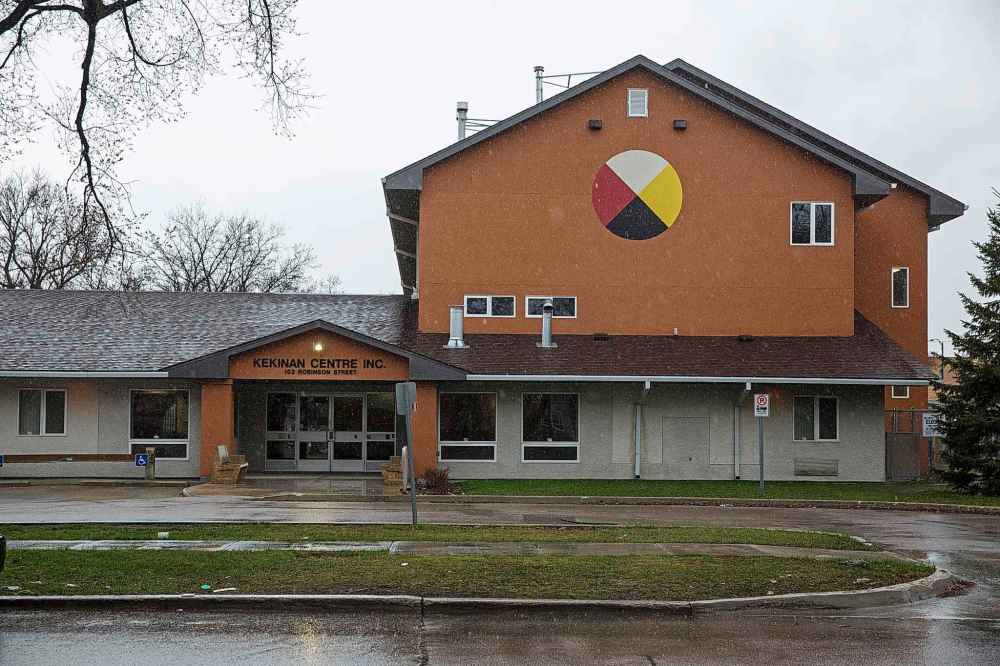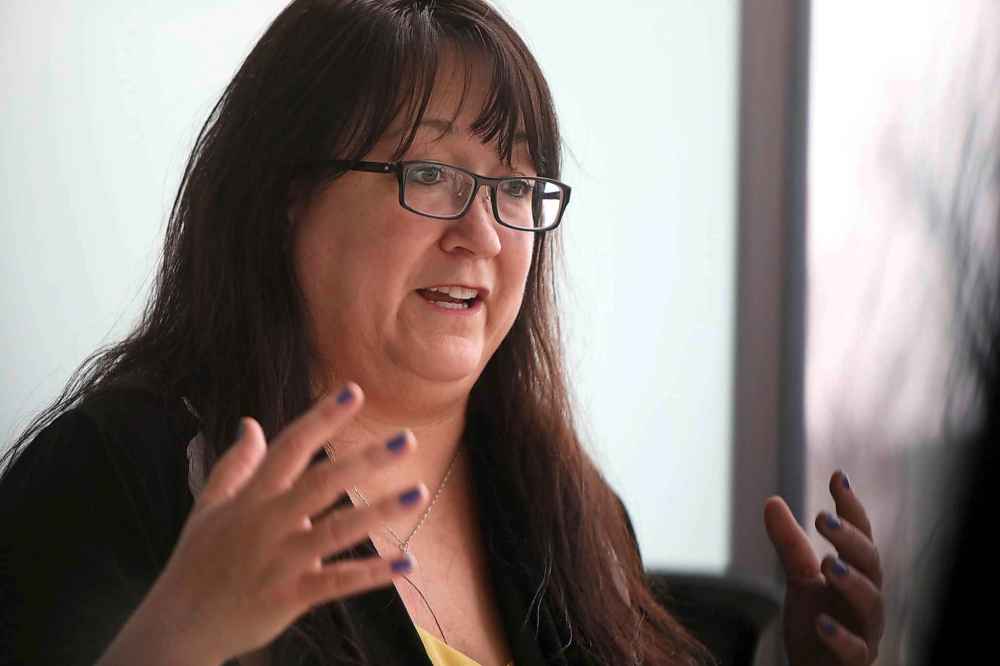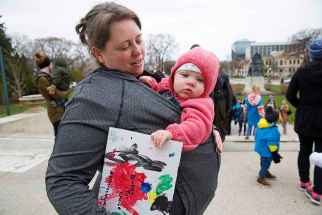‘We are the forgotten people’ Calls for help from residents of Winnipeg care home lost in bureaucracy, neglect
Read this article for free:
or
Already have an account? Log in here »
To continue reading, please subscribe:
Monthly Digital Subscription
$0 for the first 4 weeks*
- Enjoy unlimited reading on winnipegfreepress.com
- Read the E-Edition, our digital replica newspaper
- Access News Break, our award-winning app
- Play interactive puzzles
*No charge for 4 weeks then price increases to the regular rate of $19.00 plus GST every four weeks. Offer available to new and qualified returning subscribers only. Cancel any time.
Monthly Digital Subscription
$4.75/week*
- Enjoy unlimited reading on winnipegfreepress.com
- Read the E-Edition, our digital replica newspaper
- Access News Break, our award-winning app
- Play interactive puzzles
*Billed as $19 plus GST every four weeks. Cancel any time.
To continue reading, please subscribe:
Add Free Press access to your Brandon Sun subscription for only an additional
$1 for the first 4 weeks*
*Your next subscription payment will increase by $1.00 and you will be charged $16.99 plus GST for four weeks. After four weeks, your payment will increase to $23.99 plus GST every four weeks.
Read unlimited articles for free today:
or
Already have an account? Log in here »
Hey there, time traveller!
This article was published 06/05/2019 (2412 days ago), so information in it may no longer be current.
This is a story about forgotten people.
KeKiNan Centre is an assisted living centre for Indigenous seniors that has been operating since 1991. Lauded as the first of its kind, KeKiNan (“our home” in Cree) was created in response to the growing number of seniors who needed an affordable home and had specific needs — such as staff who could speak Indigenous languages.
For 20 years, KeKiNan existed as a 31-unit, single-floor building at 100 Robinson Ave., in Winnipeg’s North End, for “independent” Indigenous residents over the age of 65.
In 2010, KeKiNan expanded, adding a 28-unit, three-storey building next door (102 Robinson Ave.) as “assisted living” for those people over the age of 55. The new building came with promises to provide culturally specific programming, such as ceremonies, feasts and staff fluent in Indigenous languages.

There was much hope during those days — and staff and resources to match. Those days are gone.
Today, more than 60 Indigenous seniors live at KeKiNan. Most are residential school survivors. They are asking for help.
“We are the forgotten people,” one resident says, “and the situation here is getting worse.”
KeKiNan is subsidized by Manitoba Housing, managed by the Winnipeg Housing Rehabilitation Corp. (Winnipeg Housing), and led by a “community” board of directors. It has a single caretaker for both buildings. The Winnipeg Regional Health Authority provides a half-time tenant resource co-ordinator and some individual home care for residents.
In recent years, residents say KeKiNan has suffered from neglect, even abuse.
“This place is being run like a residential school,” one tenant says, “and if we talk about it, we will be thrown on the street with nowhere to go.”
Several KeKiNan residents have impressively and meticulously documented six years of meetings, reports, emails to management and calls for help to organizations.
In a June 14, 2013, report for the Southern Chiefs’ Organization, tenants cited “manhandling of residents” by KeKiNan staff, intimidation by management, “theft occurring within resident apartments” and “racism” and asked to have a say on who sat on the board of directors.
At a September 2018 tenants meeting, it was reported “many of the issues and concerns remain untouched/addressed by WHRC management and board of directors.”
During interviews and investigation at KeKiNan, residents asked the Free Press not to use their names, for fear of retribution.
Residents say there has never been any Indigenous cultural programming at KeKiNan. or much programming at all. There is no staff beyond the half-time worker from the WRHA, who does basic tasks; that is perhaps not surprising, as the job description asks staff to be “familiar with Aboriginal culture.”
‘We’re vulnerable…and no one seems to care’
The facility has had a rotation of caretakers — and a six-month span in 2018 without one, leaving no one in the building except residents and a few health-care workers and kitchen staff.
“We’re vulnerable,” one elderly woman says, “and no one seems to care.”
There is no security presence in the building besides a few cameras. “But no one mans the cameras,” a tenant says, “and the cameras go the manager’s office, who is barely here. Even if something happened no one would see it.”
Crime is a near-daily occurrence at KeKiNan. At a September 2018 tenant meeting, it was reported money and even appliances often go missing. Tenants also stated kitchen staff had been abusive, drug-dealing had been taking place in the facility and clothes were stolen from the laundry room.
One tenant says the TV was stolen from the recreation room last December, in the middle of the day.
Police are called “all the time, especially at night.”
The Winnipeg Police Service says officers were dispatched to KeKiNan five times over the past seven days, including intervening in a situation involving a non-resident who entered a suite without permission and created a disturbance.
Tenants say the locks on the front door mean little and strangers frequent the building. Non-tenants come in to “party.” It has led to an atmosphere of fear.
“I want to move out,” one resident says, “but where would I go?”
Tenants say cars have been vandalized and people can’t walk the grounds because of used needles. Strangers, often intoxicated, walk on the roof and around the facility, knocking on windows and harassing residents.
As there is no security on site, the community volunteer Bear Clan Patrol visits KeKiNan a few nights a week. They clean up and advocate for residents — even showing Gov. Gen. Julie Payette around KeKiNan in November.
However, the safety issues at KeKiNan go much deeper. Emergencies often turn into life-threatening situations; assisted-living residents are on the third floor, and many are disabled. There is no one to help them escape quickly and safely. Many are poor, have no cellphone and come from remote communities. There is one pay phone on the first floor.
“Last year, we had a fire alarm,” one tenant says, “and a woman had to drag herself by her hands down the hall.”
Over the past five years, three tenants have died and not been found for hours or even days. One wasn’t found for more than a week — when tenants demanded to have her door opened.
The manager of the centre, Michelle Meeches at Winnipeg Housing, said “all recent resident concerns have been addressed” and directed the Free Press to her supervisor, James Heinrich. He directed inquiries to the chairman of the KeKiNan board, Lawrence Poirier.
Poirier said KeKiNan isn’t an “old-age home” and “funding is the biggest problem. We’ve tried to address this, but we’re volunteers. If tenants need more help, then maybe they shouldn’t be staying at KeKiNan.”
He directed further questions back Winnipeg Housing.
In late April, KeKiNan residents contacted a small group of Indigenous leaders, including Diane Redsky from Ma Mawi Wi Chi Itata and Sen. Murray Sinclair (disclosure: my father). They agreed to try to help, and that’s when I got involved.

We all found the same problem: no one seems to care about KeKiNan.
Redsky spent a week talking to representatives from the WRHA. No one, it appears, knows who is in charge, who to speak to or what to do.
“It’s not clear who is responsible for what over there,” she says, “and where the duty of care begins and ends.”
Meanwhile, KeKiNan tenants remain neglected, frightened and are asking for help.
They are the forgotten people. Again.
niigaan.sinclair@freepress.mb.ca

Niigaan Sinclair is Anishinaabe and is a columnist at the Winnipeg Free Press.
Our newsroom depends on a growing audience of readers to power our journalism. If you are not a paid reader, please consider becoming a subscriber.
Our newsroom depends on its audience of readers to power our journalism. Thank you for your support.
History
Updated on Tuesday, May 7, 2019 1:34 PM CDT: correction information that Manitoba Housing owns the buildings










